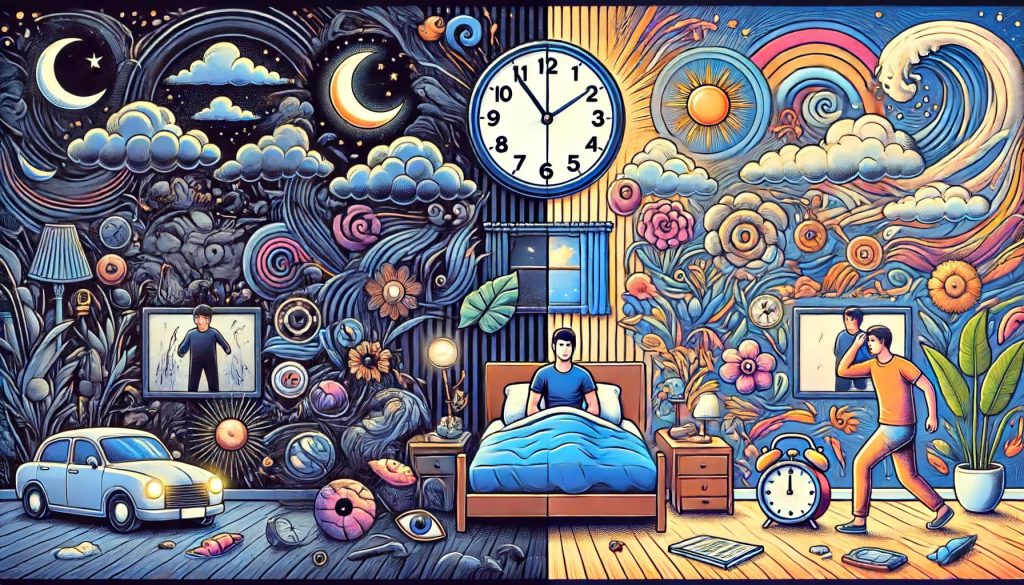Many of us identify as night owls, preferring to stay up late and sleep in. However, recent research suggests that this lifestyle might be detrimental to mental health. Here’s what you need to know:
1. Mental Health Risks : Night owls, or those who stay up late, are at a higher risk of mental health disorders, including depression and anxiety.
2. Irrespective of Chronotype : The mental health risks associated with late bedtimes are significant regardless of whether a person is naturally a night owl or an early bird.
3. Increased Likelihood of Diagnosis : Night owls sticking to their late schedules are 20% to 40% more likely to be diagnosed with a mental health disorder compared to those who sleep earlier.
4. Impact of Social Isolation : The isolation of being awake when most people are asleep can exacerbate mental health issues. This is particularly true in less socially active environments during nighttime.
5. Mind After Midnight : There’s a hypothesis that the neurological and physiological changes that occur late at night can foster impulsivity, negative moods, and impaired judgment, contributing to poor mental health outcomes.
6. Morning Light Exposure : To improve mental health, night owls are advised to wake up earlier and get maximum exposure to natural light in the morning, which can help reset their body clocks.
7. Behavior Over Timing : Adjusting late-night behaviors, such as avoiding impulsive decisions, might be as important as changing sleep times.
8. Long-Term Studies : Longitudinal studies confirm that night owls who maintain late sleeping habits are more likely to develop mental health disorders over time.
9. Best Practices : For better mental health, it’s recommended that night owls go to bed before 1 a.m. This change, although challenging, can help align their behavior with healthier sleep patterns.
10. Cultural Variations : In some cultures where nighttime is more socially active, staying up late might not have the same negative impact on mental health, suggesting that social context matters.
In conclusion, while being a night owl might seem appealing, the research suggests significant mental health benefits to adjusting your sleep schedule to an earlier timeframe. Taking small steps towards waking up earlier and getting more morning sunlight can make a big difference.
Stay informed and take care of your mental health!








